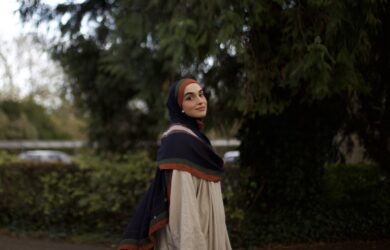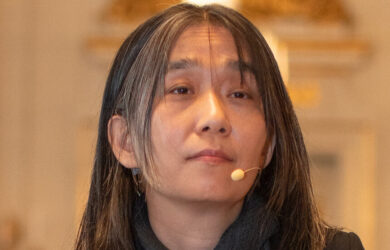
Indian women's accounts of the impact of partition have traditionally been assumed to be the same as men's. Anjali Datta's research hears directly from women and seeks to explore how partition and women shaped modern Delhi.
Indian women’s accounts of the impact of partition have been little heard. Anjali Datta wants to focus not only on how the partition of 1947 affected them, but on the longer term effect of that impact on the history of modern-day Delhi.
“In most histories of partition women have not had a voice. It was assumed that the history of women was the same as men. Partition impinged on their lives differently. They suffered a lot. Many, for instance, were raped and abducted,” she says.
Her research focuses on the history of women in Delhi, on the local economy of Delhi and how Delhi expanded after partition both economically and socially. She is interested both in the women who migrated to Delhi following partition as well as the women who were already living in Delhi, many of whom left.
A particular interest is how patriarchy re-established itself after partition. The upheaval saw some norms suspended, for instance, before partition remarriage was taboo and women were not allowed to work and were not educated beyond primary school. After partition they had to work to sustain their families. Many had lost husbands and fathers.
“These women also became very conscious of the need to educate their own daughters so the second generation had different experiences. A lot of refugee enterprises were also set up; many shops were run by women in the 50s and 60s. However, as partition became a thing of the past the government started to withdraw grants issued to help women entrepreneurs. Slowly women moved back into the home,” says Anjali [2009], who was born and grew up in Delhi.
Anjali’s family background and childhood in Delhi had a big impact on her future career. She attributes her love of learning to her father who used to be a professor of English Literature at the University of Delhi where she did her masters and an MPhil. She says her father gave her a love of reading and studying. “He took my sisters and I to museums, read to us and was enthusiastic to help us with our projects. It was a simple upbringing, but one which was rich in intellectual resources. Going into academia was something I was trained in from an early age,” she says.
She adds that she was always very curious and loved learning and finding out about the world. At school, she was fascinated by the social sciences and loved sport, music and travel. She travelled around India, but always to places steeped in history.
For her undergraduate degree in history, she attended a women’s college, Lady Shri Ram College, which she says was her first encounter with women’s issues. There were a lot of opportunities to work with NGOs, social services and others on projects. Anjali started joining organisations working on women’s issues. “There were a lot of discussions and I learnt that however emancipated and educated you are being a women is a particular vulnerability in our society,” says Anjali. “It made me more determined to work with women’s organisations on issues like domestic violence.” An encounter closer to home with a neighbour who admitted aborting a female child also gave her a deeper awareness of the issues. “I was shocked that she could admit it so openly and with no sense of shame,” she said.
Her undergraduate degree was in history. She then did a masters and an MPhil in modern history at the University of Delhi, with a particular focus on social history. Her dissertation was on the partition of India.
Her grandparents had been affected by partition. Her father told Anjali stories of the problems they had faced and how Anjali’s grandmother had supported her grandfather through the upheaval.
It was not a surprise therefore that the main focus of her research was how women had sustained their families through this period.
After her masters she started teaching at the University and continued to do so for the next eight years. She also continued her activism, inviting speakers from some of the women’s organisations she was working with to the classroom. She describes teaching as “my prime passion”, but also continued to publish research throughout those eight years. “I see research and teaching as two sides of the same coin,” she says. “They complement each other.”
Research
She had always intended to do a PhD, but after her MPhil she got married and had a baby. She applied to the University of Cambridge when her son was two and was keen to work with Dr Joya Chatterji who is an expert on the history of modern South Asia, particularly the partition.
Her husband and son moved to Cambridge when she started her PhD. Her husband resigned from his job and looked after their son until he found work in the UK. Anjali had already done quite a bit of research on her PhD subject before she came to Cambridge and had conducted some interviews so she was able to start writing up some of her research even in her first year.
Anjali expects to finish her PhD next year.
Her research starts from well before partition and takes very much an interdisciplinary approach, embracing sociology and anthropology as well as history. She has conducted a lot of interviews with survivors of partition in their 80s and 90s.
Anjali’s research has been difficult due to its sensitive nature. Several women she interviewed had to be accompanied by their husbands. “It meant that the woman could not talk independently. I was conscious that they were saying what they thought their family wanted to hear,” she says, particularly around sensitive issues such as rape.
“I approached the interviews by focusing on how they survived rather on the emotional trauma they had gone through,” she says. “It’s very difficult to talk directly about such traumatic events that happened many years ago.”












